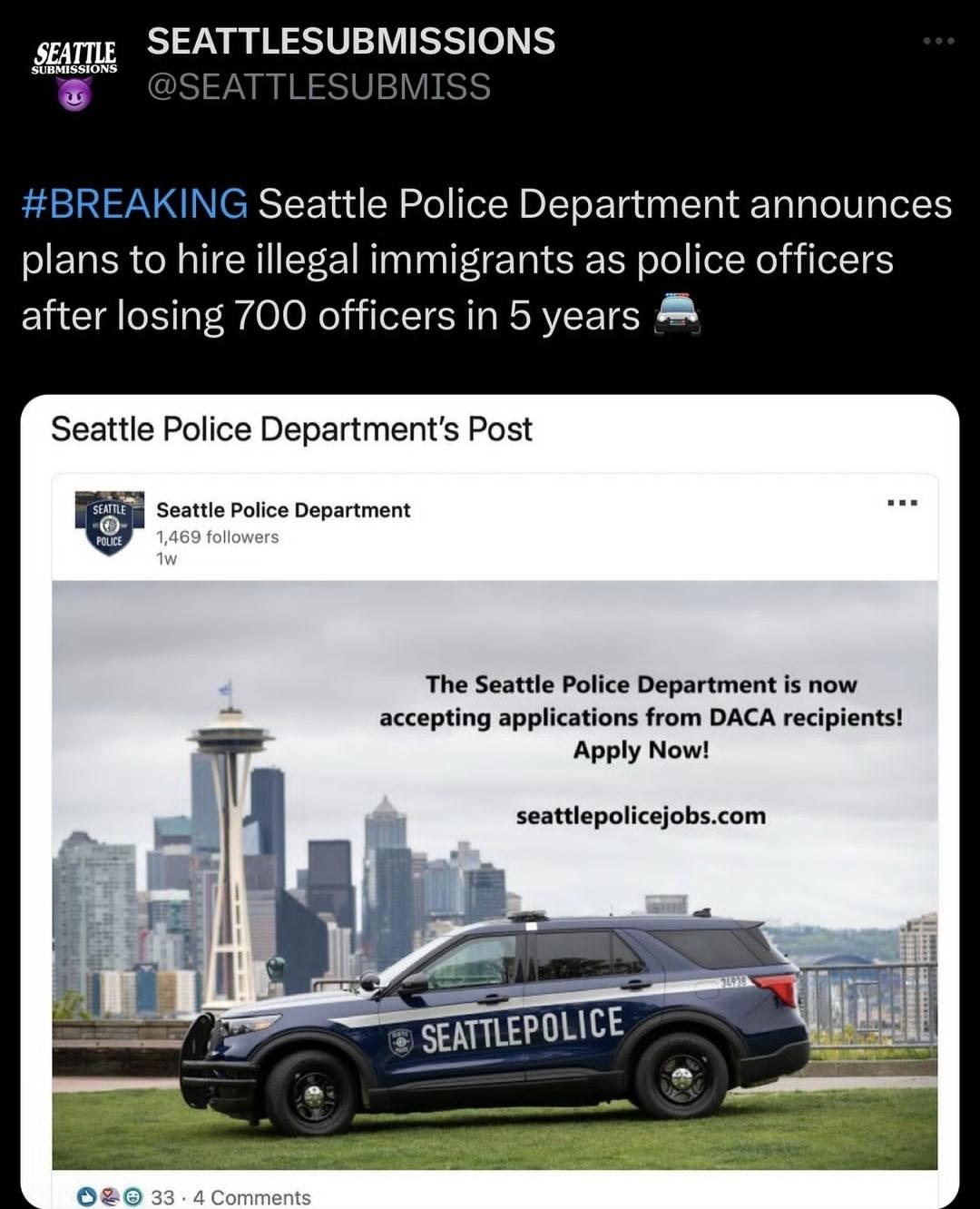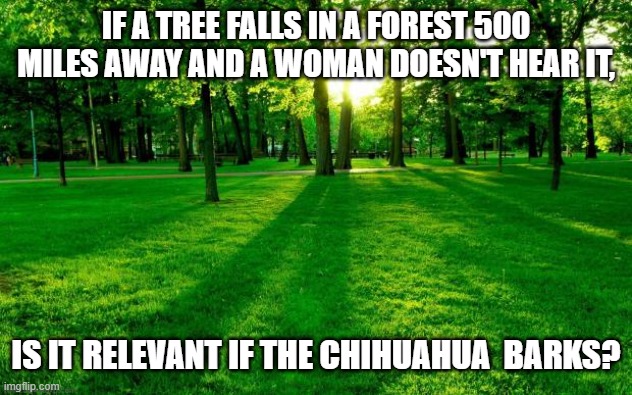“If the rule you followed brought you to this, of what use was the rule?” – No Country for Old Men

How many clickbait articles does it take to change a lightbulb? The answer will shock you.
First: thanks everyone for the comments last week, agree or disagree, it was an epic comment section with over 5,000 words of well thought out commentary.
One of the things that I think we all have to realize is that the thought process and institutions that got us into this situation are the thought processes and institutions we have to reform because that’s how we got here. This is the same logic used by the Founders when they created this place.
I am first and foremost for things that make the family strong, and the virtue that comes from being observant is absolutely one of those things. The Constitution isn’t agnostic, though it allows you to be.
I am furthermore very much in favor of limited freedom. Well, limited how? You know, pesky things like murder should be outlawed. Does no-fault divorce with alimony and child support make women “freer”? Yes. But it’s horrible for our nation.
And I am for a mostly free market. Should marijuana be legal? Probably not. Should Google™ be able to change its search algorithm with the express intent of keeping Donald Trump out of the White House? Also, probably not.
Should every corporation be able to live forever and go into any line of businesses, leading to Facebook™ buying competitors just to keep relevant?
Yeah, no.

What’s the difference between Mark Zuckerberg and your wife? Zuck knows more about you.
Below are some great points that I had to condense. I tried with utmost sincerity to try to trim them fairly, so they didn’t lose context though I fixed a few typos. Keep in mind if I had kept all the bits, this post would probably end up doubling to around 7,000 words, and ain’t nobody got time for that. Comments are in bold italics, responses are mine.
Free market capitalism only works in a very homogeneous society with a shared and enforced set of Christian values, along with churches strong enough to enforce said values.
John Adams said, “Our Constitution was made only for a moral and religious people. It is wholly inadequate to the government of any other.” Freedom, and free market capitalism, really only works with a moral and religious people. Everything else quickly turns into some form of tyranny. Or tranny. Or both.
I disagree – the free market can and has flourished in many locations through history, see Kipling’s Gods of the Copybook Headings. Now, combining the free market with a mostly free society? Yes, that requires a virtuous people, with a shared virtue founded in a shared religion.
The worst is altruistic people without religion: those are monsters.
Kipling, Gods of The Copybook Headings, and It’s Different This Time

Ahh, when you get the smug feeling that comes from your altruism but somebody else pays the price.
the absolute number one reform on corporations that needs to happen is not on the list though: this is removing the liability shield. The shareholders of a company must be liable for the actions done in their name, as well as for the debts of the company, and they must be actual people, not other corporations. the debts are easy to prorate over the outstanding shares. the liability for damages or criminal activity, however, must be shared by all shareholders.
In researching this, although not all shareholders may have been liable, the managerial class of the corporation were legally and criminally liable at least for a time in the country. I was surprised! And, for the same reason you suggest.
Restricting corporations sounds great, but how could it be enforced? More .gov, more bureaucracy, more laws, more grift. Rather than strongarm huge national and international entities, think of ways to incentivize the local aspect. We don’t need any more .gov regulation mucking up our lives.
Just devolve it back to the Several States, it would be a rather simple Constitutional amendment. Oh, and have the Several States select senators to protect their rights. Much of this nonsense happened after senators became “super congressmen” with longer terms.

Sorry, looks like this picture has a piece of Schiff on it.
Corporations only exist because of government powers. They could not exist without the government enforcing their existence 24 hours a day. If the government were to simply no longer recognize corporations as legal entities, they would disintegrate in seconds. So changing the terms of that government support is not anything out of imagination.
Yes. And there is historical precedent. And don’t forget that AT&T being broken apart didn’t cause the world to explode even though they had a Death Star© logo.
The corporations MAKE the laws.
This is very, very true. I reference the exact stats a little lower in the post, but if the Elite is for a regulation, then it happens. Look at the endless hordes of illegals: this was chosen by both sides. Either could have stopped it, and either could stop it today. But the Elites have bigger pocketbooks.
Peter Turchin’s End Times: There Be Dragons Here
Chain stores outcompete mom-and-pop stores. Customers prefer to buy from them. Why are you objecting to what customers have decided they want? It is not obvious that patronizing chain stores is contrary to customers’ interests.
Your policy prescription reads like the envy wish list from local pharmacists who can’t compete on price and selection, and demand government ban their competition.
At one point, I agreed with your statement wholeheartedly even though I’ve never been and never will be a pharmacist. Customers do prefer lower prices. Larger big-box stores can get those by several ways: a good one is lowering the cost of goods delivered to the store via increased efficiency, a bad one is offshoring all manufacturing in critical industries. But the impact on the community is not zero sum. Profits that would stay local aren’t local anymore. That has a cumulative effect. If you really want big box stores and they’re 50% locally (in-state) owned with a specific mandate, and there are strategic tariffs? Maybe we’re both happy and life is better.

Never put a catheter into a pharmacist, you’re just left with a harmacist.
The next comment went point by point, but I skipped a few points (length):
- Require corporations to be chartered as separate entities in each operating state.
And here we have the restriction that really silos the states from each other. I don’t know – CAN this be done at the state level, or would this require federal action?
- Require a percentage (greater than 50%?) of local (think, people living in the state) ownership in each corporation.
If the preceding point can be done, so can this.
- Sharply restrict lending by out of state institutions.
Ok, I know there’s a federal law on this – the Riegle-Neal Interstate Banking Act.
- Tiered sales tax based on company size: the bigger, the higher, which reflects the value these companies are taking out of state.
Let’s add income taxes in here too, and combine this with points 1-6 above, and create a new legal entity – the “Domestic Missouri Corporation” (for example), which must have 50%+1 local ownership, a 50 year limited life, collects no sales tax, is exempt from as many state regs as reasonable; and income derived from a DMC is taxed at an extremely low rate by the state (if at all), and liquidation distributions from a DMC (at the end of the 50 year life) are exempt from state taxes. DMCs can be banks, and are then exempt from most state-level banking regulations.
There was an awesome longer comment talking point by point about the legality at the state level of doing this that I excerpted above. Yes, it would require an amendment to the Constitution, because the Supreme Court (activist in the Robber Baron days) essentially nationalized corporations, primarily to protect the railroads (many of the court cases that changed the status of corporations from limited to infinite dealt with railroads).

Our local railroad has a good training program.
The big corporations collude with the government to use your tax dollars – stolen from you at gunpoint – to subsidize their costs.
A point I missed, thanks for bringing it up. This is a particularly insidious trap – and it creates more input for the victim machine that is the GloboLeft – they import millions to undercut wages, profit strip an area, but are in favor of subsidizing the low-wage Potterville they’ve created. People who depend on the government want . . . more government. And (as noted by another commentor, they also look to have local communities give them a tax break, or even tax citizens to get them to pay for capital expansion (new stadium, anyone?).
. . . lots of corporations make contributions to local interests. WalMart posts these inside their store. In my neck of the woods, Family Express does lots of community support. On a national level, Thrivent does all kinds of stuff. All you need to do is ask. They approve even marginal stuff, though I know of no cases of them funding LBGTOMFG crap.
Back before the Boy Scouts went woke, I was a Cubmaster. We went to Wal-Mart® and asked for contributions for day camp, even offering ad space. “No.” No large, non-local business contributed. Local businesses did. My experiences only.
I don’t disagree with any particular point, however, no set of laws will ultimately protect you from a group who A) is reasonably intelligent, B) is entirely unscrupulous and C) instinctively works together against outsiders. The only thing to do with a group like that is not deal with them and exclude them if at all possible.
Effectively, we are currently ruled by such a group. Until we are rid of them, these laws would grant temporary protection at best.
This is a significant problem, but it’s one that exists, well, everywhere. Look at Indians (dot, not feather) that get jobs at Microsoft©. What do they do? They get on the hiring side and only hire additional Indians. The same can be said of other groups that are insular – a friend works for a Mormon corporation. He noted that non-Mormons can get jobs there, but never C-suite positions. And, yes, Jews do this too and have been exceptionally successful at it. One of James O’Keefe’s targets noted that at Disney©, there was no way that anyone but a Jewish person could get a top job.
Under a decentralized set of solutions as we’ve discussed, it is simply very, very difficult to concentrate that much power.

There’s a highway to hell but a stairway to heaven, which may be a commentary on the expected traffic load.
As an entrepreneur myself, I think all you really need is #1: Restrict corporations to a limited life span, at which time they have to divest. . . . (or) . . . Just make them play by the same damn tax rules. That’s probably sufficient.
How about we replace most taxes with tariffs?
Your great ape brain firmware wants to blame the competing outside tribe instead of traitors who look like you, but that group is called “middle class WASP voters”. That group has such a large percentage of the votes that no other group can force any policy onto them. Why then are there so many policies made against their interests? Are middle class voters mostly a bunch of non-player-characters whose minds are programed by the mainstream media? If so then voting can never work.
But policy after policy has been shoved down the throats of the middle-class WASP voters. Who voted for unlimited immigration? Here’s Turchin:
“The political scientist Martin Gilens . . . gathered a large data set – nearly 2000 policy issues between 1981 and 2002. Each case matched a proposed policy change to a nation opinion survey asking a favor/oppose question about the initiative . . . .
“Statistical analysis . . . showed that the preferences of the poor had no effect on policy changes . . . . What is surprising is that there was no – zilch, nada – effect of the average voter. The main effect on the direction of change was due to the policy preferences of the affluent. There was also an additional effect of interest groups, the most influential ones being business-oriented lobbies. Once you include in the statistical model the preferences of the top 10 percent and the interest groups, the effect of the commoners is statistically indistinguishable from zero.”

Given inflation, the poor are revolting. No surprise, soap is expensive.
I will say that communities becoming dependent on the corporations is a problem as well. Again, example here in New Home: We have two very large corporations in town and one just down the road that are likely substantial employers for this entire region. If they go, it will have a huge impact.
There is a place for larger corporations with longer lives. But they need to be sharply held to task. Why is Facebook™ still so big? They bought all potential competition when the competition was still small. Facebook® as Facebook™ is fine, but when they want to just buy other corporations to make themselves invulnerable? No. But someone needs to make aspirin and airplanes, and Bayer® and Boeing™ can do that. Maybe if Boeing had maintained a focus on airplanes they wouldn’t suck.
One (of Denninger’s suggestions) was to eliminate the ability for large investment firms like Blackrock and Vanguard to vote proxy shares on the mutual funds of their customers. This gives them ginormous power to influence the country which is why we have DEI (among other things). With this power it becomes easier to vote themselves even more control. To stop this, the actual owner of the stock (even via a mutual fund) should be the one who votes the shares or else the votes are forfeit. That would deflate their power tremendously. I would go a few steps further though, and limit their ability to invest in certain areas (real estate for example).
Yes. BlackRock® should be neutered.

Why wouldn’t you trust Dr. Anthony Fauchi?
Undertake to lay your finger on that clause in the Constitution which gives government that authority and power.
“To regulate Commerce with foreign Nations, and among the several States, and with the Indian Tribes;” – this is the literal and exact purpose of the article. But note, this uses the proper word “among” meaning that Massachusetts couldn’t blockade Vermont if Congress said “no”. It does not mean “within” which is the source of the mischief. States are, however, given the power, and had it, and restricted the formation of corporations to a legislative event because they were so frightened of unbridled corporate power.
At the beginning, when the Founders were still around, most corporations existed for large, well-defined purposes for a limited amount of time, and couldn’t own things that didn’t meet that purpose. This isn’t my idea, it was the Founders.
Yes. It was and is misused horribly. But it is applicable here.
Corporations get too big, and live too long (list of dead corporations)?
Yes. Just because Sears© cratered as it was looted doesn’t mean that BlackRock© or Facebook™ or Google® should be allowed to wield unlimited power, either financial or via information restriction on the public. The power of the corporation in public life can and should be limited by limiting their reach, lifespan, and ability to work across business sectors.
BTW, how did Smoot-Hawley do at saving American jobs?
Don’t know, ask China in 2024 – we’re not 1930 America. At that point(1930) we had a trade account surplus. Now? Not so much, and it’s a race to the bottom. A $5 tariff per $700 (at the time) iPhone™ would have swung the production cost to favor the United States. By 200%. Countries can (and do!) strategically target markets so that they can “corner” the intellectual skills and know-how to make strategic goods. Domestically produced F-35? No way, there are parts that in 2024 have to come from China, and the timeline for competency in that tech is measured in decades.
And how is NAFTA really working out for the economy?

I shot the tariff, but I did not shoot the subsidy.
Penalize companies for outsourcing jobs overseas, and you might be onto something. But don’t subsequently bitch when American cars and medicines cost 20x what the same products cost overseas, where they’re made in sweatshops, and are uncompetitive in the rest of the world for the same reason.
That’s making my point for me: we used to be able to do that – the P-51s flying off the assembly line and into Europe was because we had the capacity and the know-how. Germany could figure out how to make cars. And in what industry (exactly) are we 20x less efficient?0
I’ve been thinking a lot on this lately. Do communities really benefit from cheaper prices at stores like Walmart or DollarStore if all they are is conduits sucking money out of local communities? Or, banking at MegaBank Corp when the local bank is owned by shareholders in the community?
I know a guy who owns a bank here in Modern Mayberry. Has a nice house that he had built. By local labor. Bought the concrete at the local plant, owned by locals. He also volunteers his time to lead a civic group. Make him a branch manager of MegaBankCorp© and he’d be buying a crappy house, and too tired to go out and help out after dinner. But, hey, with MegaBankCorp™ your interest goes to New York!
I’m guessing (hoping) this discussion is really just JW’s way of pointing out the dearth of anyone having read Adam Smith’s Wealth Of Nations, which came out the same year as the Declaration Of Independence, and therefore being wholly ignorant of how liberty works in a country not controlled by the state, cannot come up with one reason (out of any five hundred) why government control of any markets is asinine and stupid in the extreme.
Adam got a lot right theoretically but also wrong practically. Yes, it would be silly to grow grapes in Greenland, but comparative advantage says not. We’re not talking about grapes, though. And, Smith was against tariffs, but the average tariffs went up as high as 60%. During our industrialization phase up until 1930 or so, the average tariff was 50%. Average. And they made up 95% of federal revenue – so much that we didn’t need an income tax.
Adam Smith was against those, so we can see the United States was very weak and not an industrial powerhouse. Oh, wait.

Socialists would be fine using the invisible hand to change a lightbulb, but it would have to be somebody else’s bulb.
Bonus points: When the government also decrees that the national minimum wage should be $20/hr, how many of you will venture to local restaurants to buy dinner out?
I’m against minimum wages. Boot the illegals out, restrict legal immigration, let the price float while defanging .gov as well as .com. Yes, government is a dangerous servant and a cruel master, but so are Facebook™, Google©, and BankAmerica®. Defanging both of them isn’t a bad idea.
So you’re okay with a government corporate entity living forever, but the idea that private citizens could have the same ability and right to incorporate scares hell out of you? And when, exactly, are the masters of that government held liable for the consequences of their actions?
Governments end. We have successive congresses, and successive presidents (elected or not). Putting all of them on trial like the Spartans did after their terms (limited!) end is maybe not a bad idea – it would be fun to watch Clarence Thomas in charge of such an event. I think the bigger problem is the regulator class, which should be mostly eliminated by actually following the limits placed on the federal government by the Constitution.

That would probably make her Schiff her pants.
Thanks for participating in this little thought experiment. Again, it’s clear that the concentrated power of government is bad. It’s also clear that the concentrated power of corporations can be just as bad, since they appear to inevitably twist themselves into anti-competition behemoths that want to control governments, import endless streams of illegals, and support Leftist causes – hence, the GloboLeftElite.



































































































